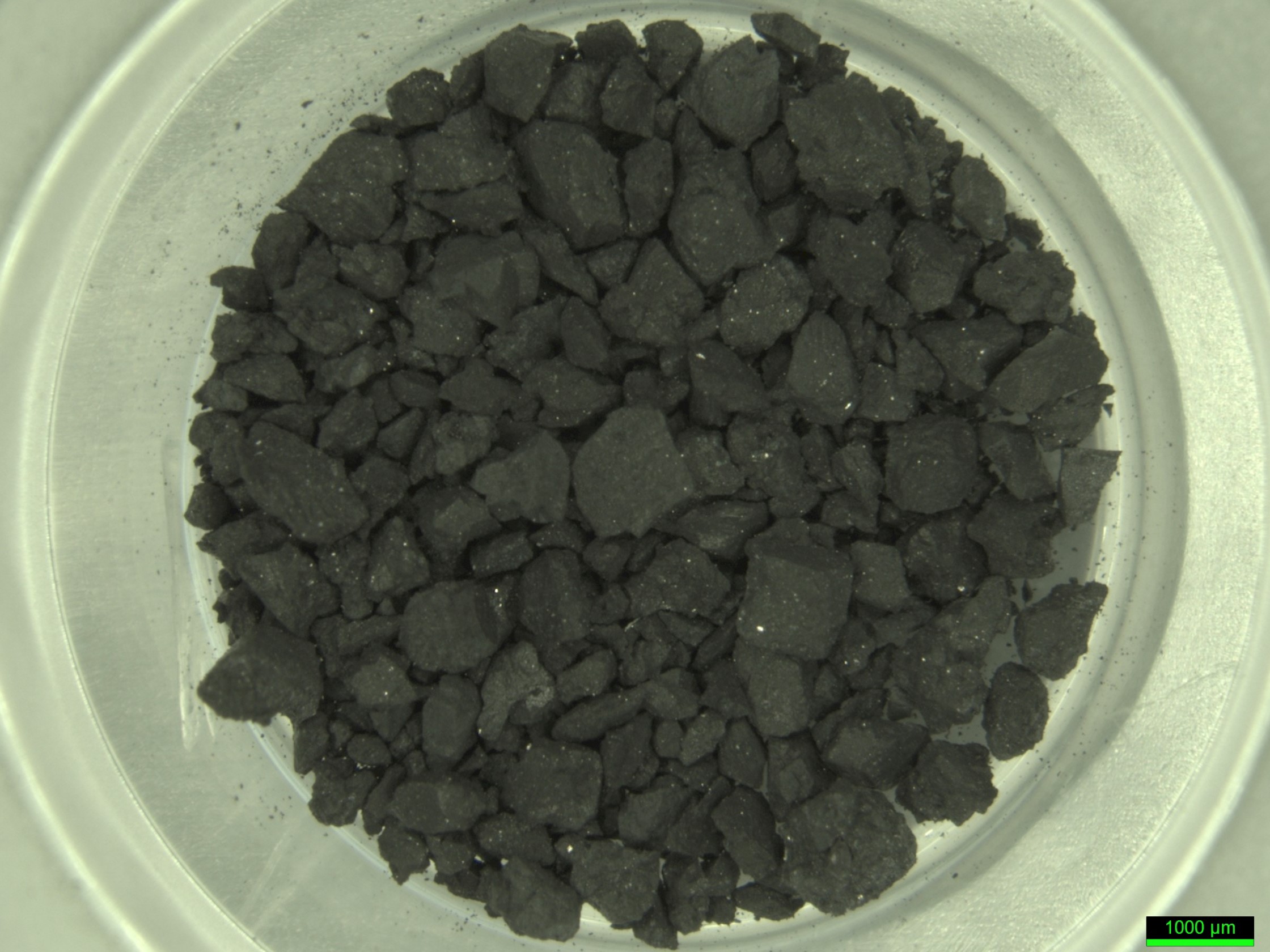Essential molecules for life may have been 'delivered' to Earth from space

A free daily email with the biggest news stories of the day – and the best features from TheWeek.com
You are now subscribed
Your newsletter sign-up was successful
The building blocks for life on Earth may have actually come from outer space, according to a new discovery by the Japanese Aerospace Exploration Agency (JAXA).
Scientists found a number of organic molecules in samples from the asteroid Ryugu, collected in 2019. The molecules include uracil, a building block for RNA, as well as niacin, which is important to metabolism, ScienceAlert writes. "These molecules on Ryugu were recovered in a pristine extraterrestrial setting," said lead author of the study Yasuhiro Oba of Hokkaido University. "It was directly sampled on the asteroid Ryugu and returned to Earth, and finally to laboratories without any contact with terrestrial contaminants."

RNA is used by cells to send genetic information and niacin helps to energize living organisms, Reuters explains. "The discovery of biologically relevant molecules such as nucleobases in the most pristine extraterrestrial materials without any terrestrial contaminations guarantees that they are really present in extraterrestrial environments," said Oba. "Other biological molecules were found in the sample as well, including a selection of amino acids, amines and carboxylic acids, which are found in proteins and metabolism, respectively," he adds.
The Week
Escape your echo chamber. Get the facts behind the news, plus analysis from multiple perspectives.

Sign up for The Week's Free Newsletters
From our morning news briefing to a weekly Good News Newsletter, get the best of The Week delivered directly to your inbox.
From our morning news briefing to a weekly Good News Newsletter, get the best of The Week delivered directly to your inbox.
The discovery suggests that the necessary compounds for creating life may have been "delivered to the early Earth," per the report in the journal Nature Communications. "I cannot say the presence of such ingredients directly leads to the emergence/presence of extraterrestrial life," Oba commented. "But at least their components such as amino acids and nucleobases may be present everywhere in space."
A free daily email with the biggest news stories of the day – and the best features from TheWeek.com
Devika Rao has worked as a staff writer at The Week since 2022, covering science, the environment, climate and business. She previously worked as a policy associate for a nonprofit organization advocating for environmental action from a business perspective.
-
 Political cartoons for February 19
Political cartoons for February 19Cartoons Thursday’s political cartoons include a suspicious package, a piece of the cake, and more
-
 The Gallivant: style and charm steps from Camber Sands
The Gallivant: style and charm steps from Camber SandsThe Week Recommends Nestled behind the dunes, this luxury hotel is a great place to hunker down and get cosy
-
 The President’s Cake: ‘sweet tragedy’ about a little girl on a baking mission in Iraq
The President’s Cake: ‘sweet tragedy’ about a little girl on a baking mission in IraqThe Week Recommends Charming debut from Hasan Hadi is filled with ‘vivid characters’
-
 NASA’s lunar rocket is surrounded by safety concerns
NASA’s lunar rocket is surrounded by safety concernsThe Explainer The agency hopes to launch a new mission to the moon in the coming months
-
 Nasa’s new dark matter map
Nasa’s new dark matter mapUnder the Radar High-resolution images may help scientists understand the ‘gravitational scaffolding into which everything else falls and is built into galaxies’
-
 Moon dust has earthly elements thanks to a magnetic bridge
Moon dust has earthly elements thanks to a magnetic bridgeUnder the radar The substances could help supply a lunar base
-
 How Mars influences Earth’s climate
How Mars influences Earth’s climateThe explainer A pull in the right direction
-
 The ‘eclipse of the century’ is coming in 2027
The ‘eclipse of the century’ is coming in 2027Under the radar It will last for over 6 minutes
-
 NASA discovered ‘resilient’ microbes in its cleanrooms
NASA discovered ‘resilient’ microbes in its cleanroomsUnder the radar The bacteria could contaminate space
-
 Artemis II: back to the Moon
Artemis II: back to the MoonThe Explainer Four astronauts will soon be blasting off into deep space – the first to do so in half a century
-
 The mysterious origin of a lemon-shaped exoplanet
The mysterious origin of a lemon-shaped exoplanetUnder the radar It may be made from a former star
